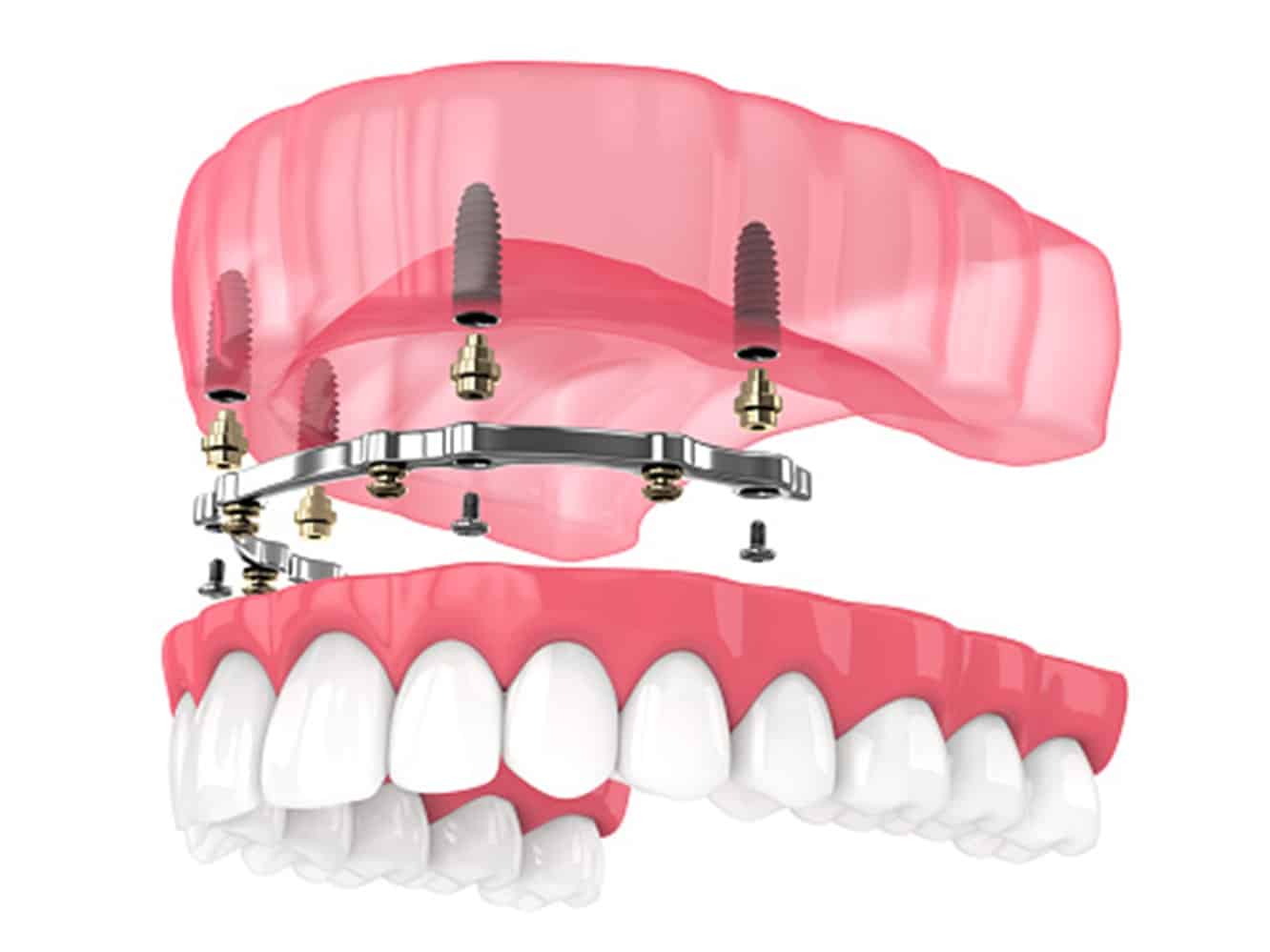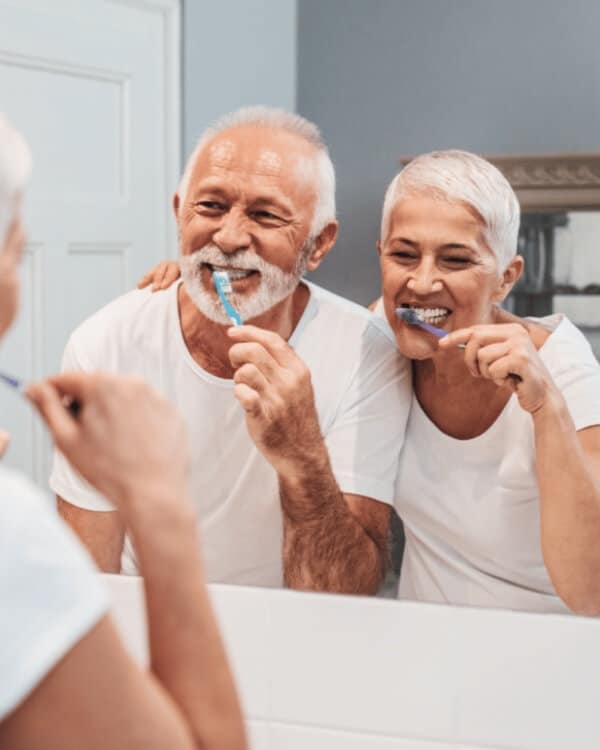What Are Implant-Retained Dentures?

Implant-retained dentures are revolutionizing the way we think about replacing missing teeth. They blend the traditional concept of dentures with modern dental implant technology to address the problems with conventional dentures. Learn about implant-retained dentures to discover why they’re so popular.
The Need for Implant Dentures
Losing your natural teeth can bring about physical challenges and aesthetic concerns. While useful, conventional dentures often fail to address these issues effectively. As a much older technology, dentures are known for fitting poorly, being uncomfortable, and shifting while eating or speaking. Traditional dentures also fail to stimulate the jawbone, leading to gradual bone loss and changes in facial structure. Then, ongoing maintenance and care are required to keep removable dentures clean and sanitary.
Implant-retained dentures are different. Rather than being held in the mouth with simple adhesive, the dentures are supported by dental implants, which act as sturdy anchors. This keeps the dentures firmly affixed to your jawbone, eliminating the challenges typical of traditional dentures.
How Implant Dentures Work
Implant-retained dentures are a combination of dental implants and custom-made dentures. Here’s how the process works:
- Implant placement: An oral surgeon implants small titanium posts into the jawbone, serving as artificial tooth roots. Some patients require a bone graft to keep the implants secure. Often, only two to four posts are needed to support an entire arch of teeth.
- Healing and integration: The implants undergo osseointegration, a process where they fuse with the jawbone, providing a stable foundation for the dentures.
- Custom denture creation: Your dentures are designed to match the natural look of your teeth and support a youthful facial structure.
- Attachment: The dentures are securely attached to the implants, ensuring they stay in place without adhesive.
- Restored functionality: Implant dentures look and function like natural teeth. With no fear of embarrassing slippage, you can eat and speak like normal—no one will know you’re wearing dentures!
Types of Implant-Supported Dentures
Talk to your oral surgeon & restorative dentist about the different types of implant-retained dentures:
- Ball attachment or locator-attached dentures are a solution for replacing lower teeth. A full set of dentures snaps onto two or more dental implants, offering stability and limited shifting.
- Bar attachment dentures involve a custom-fitted support bar spanning two to six implants in the jaw. This holds the dentures securely in place while still allowing removal for cleaning.
- Screw-retained dentures are permanently attached to four or more implants, offering a highly secure fit. These are ideal if you’re seeking the most long-term solution.
Benefits of Implant-Retained Dentures
Here are the top reasons to consider implant-retained dentures over traditional dentures:
- Improved comfort and stability: They provide a comfortable fit and don’t shift or slip inside the mouth, making eating and speaking easier.
- Bone and gum preservation: Implants help maintain jawbone health and prevent the bone deterioration that occurs with traditional dentures.
- Enhanced aesthetics and confidence: These dentures look and feel more like natural teeth for improved confidence and smile aesthetics.
- Dietary advantages: They allow for a more diverse diet, letting you enjoy a variety of foods that might be difficult to eat with traditional dentures.
- Longevity: With proper care, these dentures can last 10 to 20 years, offering a long-term tooth loss solution.
Ideal Candidates for Implant Dentures
Implant-supported dentures are suitable for a wide range of people, but the ideal candidates share these characteristics:
- Extensive tooth loss: Implant dentures are best for people missing multiple teeth.
- Adequate bone and gum health: The posts must be placed while the jawbone and gums are still healthy enough to support them.
- Commitment to the process: The procedure involves a healing period and requires patience and commitment.
- Willingness to maintain oral hygiene: Candidates must be willing to keep up good oral care at home to help the implants last.
- Non-smokers: Smoking impedes the healing process, so ideal candidates are non-smokers and people who are willing to quit.
- Overall good health: Certain medical conditions can affect the success of dental implants, so discuss your health with your oral surgeon.
Austin Oral Surgery Offers Implant-Retained Dentures
At Austin Oral Surgery, we have over 50 years of experience providing exceptional oral care. Implant-retained dentures are among our primary focuses. In fact, our 16 board-certified oral surgeons are extensively trained in dental implant surgery, offering comprehensive treatments tailored to your individual needs. We pride ourselves on our commitment to quality and providing a safe, compassionate environment for our patients. If you’re considering implant-retained dentures, please schedule a consultation with us in Austin, Pflugerville, Cedar Park, Lakeway, or any of our other 12 Central Texas locations. We’ll help you regain your smile and confidence with beautiful, natural-looking implant-supported dentures.


